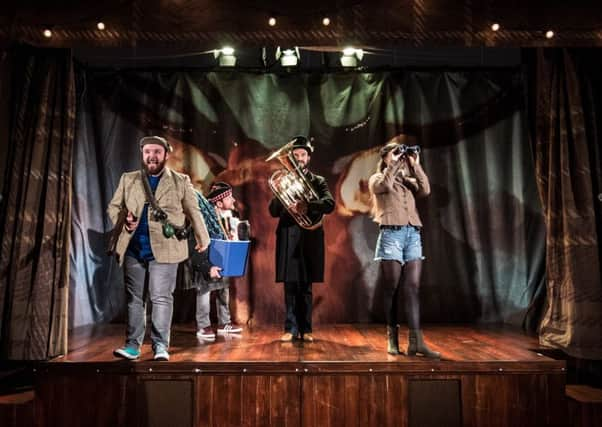Theatre review: The Cheviot, the Stag and the Black, Black Oil, Eden Court, Inverness


The Cheviot, the Stag and the Black, Black Oil, Eden Court, Inverness *****
That half the audience is standing in Joe Douglas’s big-hearted production, first seen at Dundee Rep in 2015, makes the connection to our world explicit. This is no abstract history lesson, but a story of the use and abuse of power that links us to the past. The analysis proposed by McGrath’s play, first staged by the left-wing 7:84 Theatre Company (Scotland), is that the exploitation of the country’s resources by rich sheep farmers, upper-class landowners and American oilmen has always been at the expense of the people. Thanks to a light-touch update, the production suggests our own world of Airbnb lets, offshore landowners and global corporations is no different.
Advertisement
Hide AdAlthough highly influential on Scottish theatre, The Cheviot, the Stag and the Black, Black Oil has been little seen since its debut in 1973. That’s largely because its form and content are so particular. Douglas understands that for it to work, it must not only have light and shade – comic skits sitting alongside soulful laments – and not only be politically engaged, but also make the audience feel its stories have something to do with them.
This is not a show we sit back and admire, but one we partake in. Dramatically, it has the form of a ceilidh, structured on a series of songs, poems and turns, and that has the effect of democratising the auditorium. We’re encouraged to join a barn dance, called upon to shout out pantomime-style and compelled to stomp along with the rebel songs. The most politically astute scene is when North Uist actor Calum MacDonald talks to the handful of Gaelic speakers in the audience without translation into English or BSL; a perfect encapsulation of a besieged language.
This is a show, in other words, that is nothing without the audience. One of Kate Bonney’s main jobs as lighting designer is to fade the house lights up and down. The production, with its rough-and-ready village-hall set designed by Graham McLaren, continually prods us to drop our defenses and stay involved.
That’s not difficult with this ensemble. Bubbling with joie de vivre, the cast are as welcoming as they are focused, switching deftly from the knockabout to the plangent. Freer is superb whether playing wronged crofter or amoral spiv, as is Billy Mack, gamely playing many of the evil-capitalist roles in between the wisecracks. Alasdair Macrae, meanwhile, leads the musicians in a rich, varied and ever-present score. As McGrath himself would have said, it’s a good night out.
MARK FISHER
On tour until 22 June